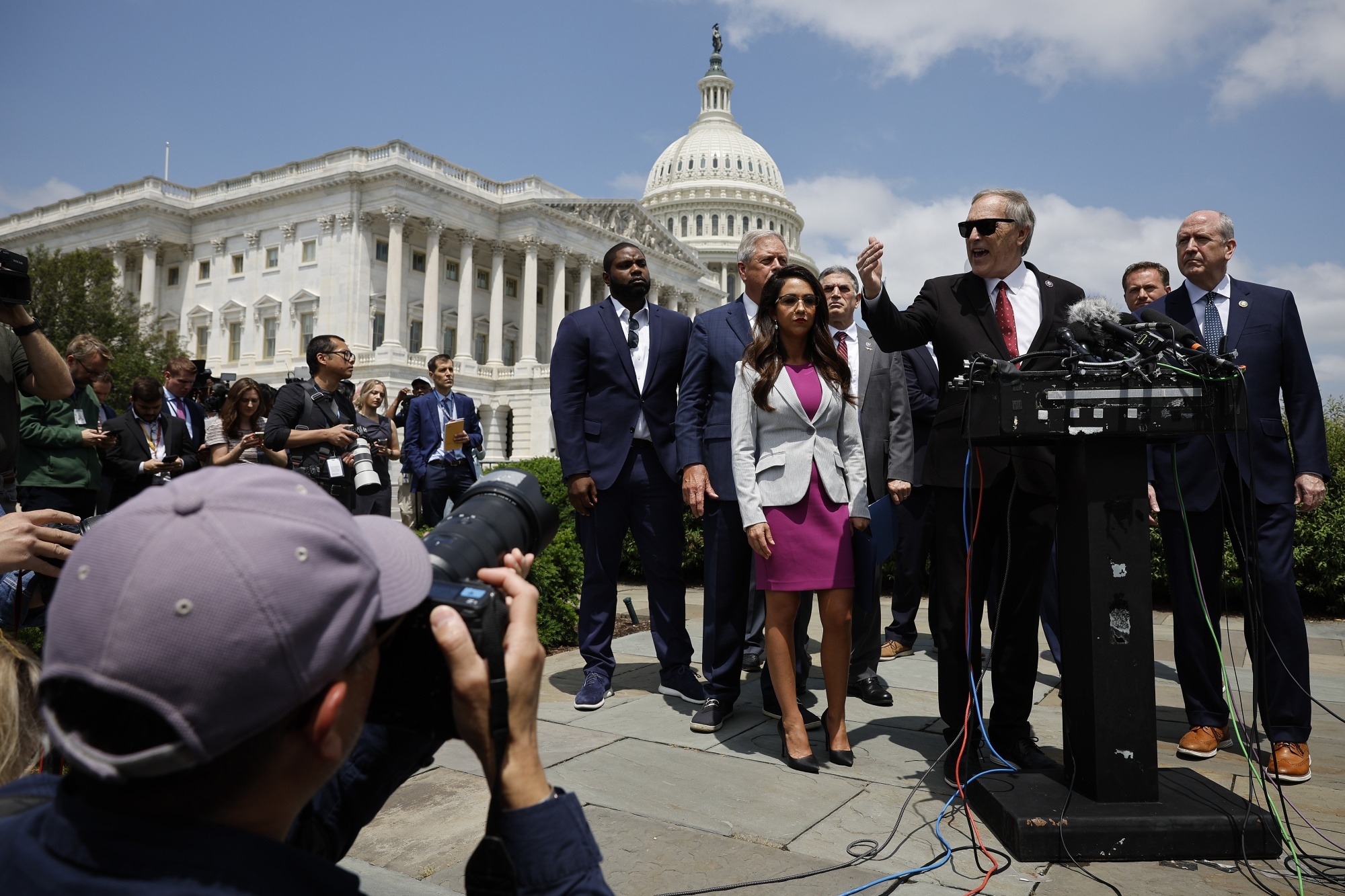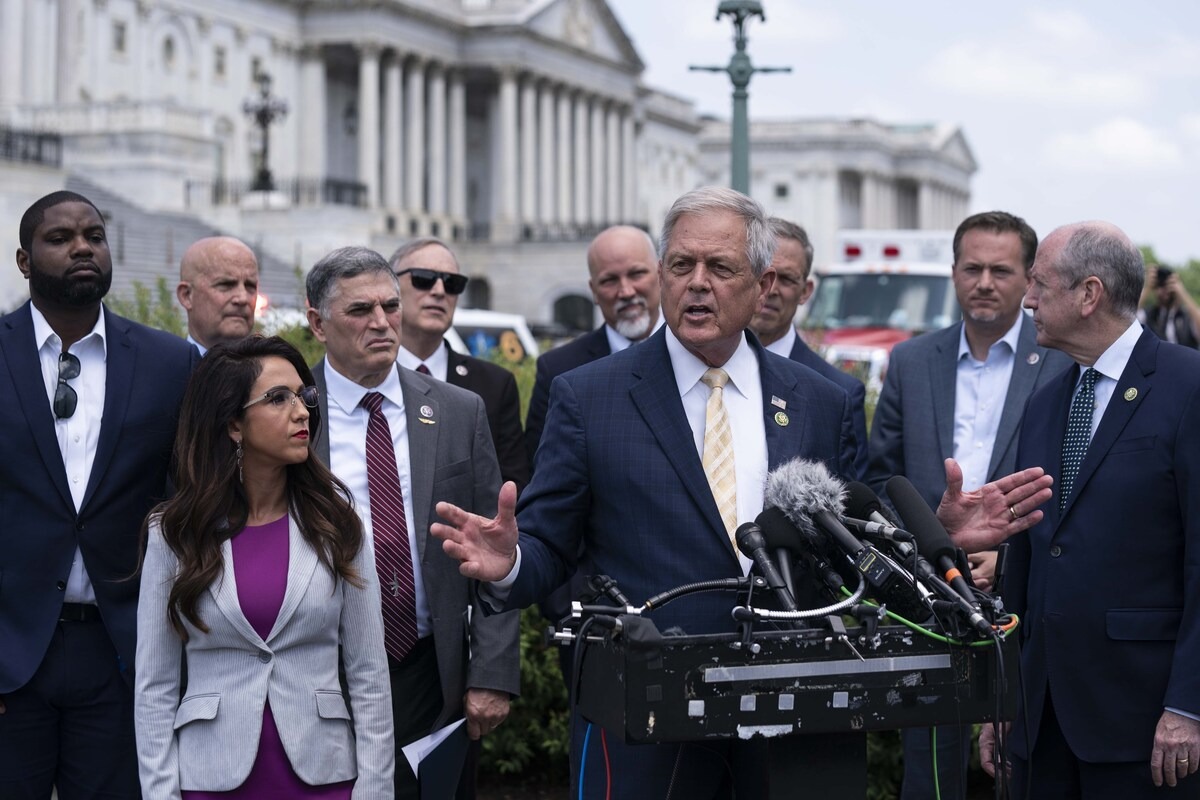When lawmakers return to Washington next week, they’ll have less than a week to pass a bill to fund the government and avert a partial government shutdown after March 1. And a slew of setbacks in recent weeks suggests the odds of a shutdown are at least even.
Tensions remain high in Congress after the Senate passed a foreign aid bill that Speaker Mike Johnson has so far refused to bring up for a vote in the House. Lawmakers in both chambers have clamored for a path forward on aid to Ukraine as conditions become more dire, while some are eager to address border security, too.
But a solution has remained out of reach as Republicans in both chambers struggle to find a version of the legislation they can back.

GOP Law Makers (Credits: Bloomberg.com)
After leaving town for the Presidents Day recesses without a clear path forward on either government funding or the supplemental Ukraine and Israel aid measure, the House and Senate are set to return to Capitol Hill next week.
Lawmakers will have just three days when both chambers are in session to approve the first four appropriations bills to prevent a partial shutdown after March 1. The second deadline will land a week later, on March 8, after which funding for the bulk of government agencies is set to expire.
“I think the odds [of a shutdown] are 50-50 at this point,” Rep. Patrick McHenry, a North Carolina Republican who served as speaker pro tempore during the speaker election last year, told CBS News’ “The Takeout” podcast.
The deadlines come months into the fiscal year, after lawmakers have already had to rely on three funding patches to keep the government operating.
After pushing the deadline off in September, and then again in November, lawmakers extended funding once more in January. With the short-term continuing resolution, they set up a two-step deadline to fund the government.
The move aims to divide work on the 12 individual spending bills to avoid a massive omnibus bill to fund the government, which has become the norm in recent years.
According to the Pew Research Center, Congress hasn’t passed more than five of its 12 appropriations bills on time since 1996, opting almost every year for continuing resolutions and ultimately omnibus packages to get the government funding over the finish line.
Despite the quick turnaround that’s required, Senate Majority Leader Chuck Schumer seemed hopeful when the upper chamber left town that lawmakers would be able to stave off a shutdown.
“There’s broad support in the Senate — and I believe in the House, where we worked with Speaker Johnson on the last bill — to not shut down the government and fund things,” Schumer told reporters last week, saying he’s “very optimistic” that they can get the funding work done in time.
























